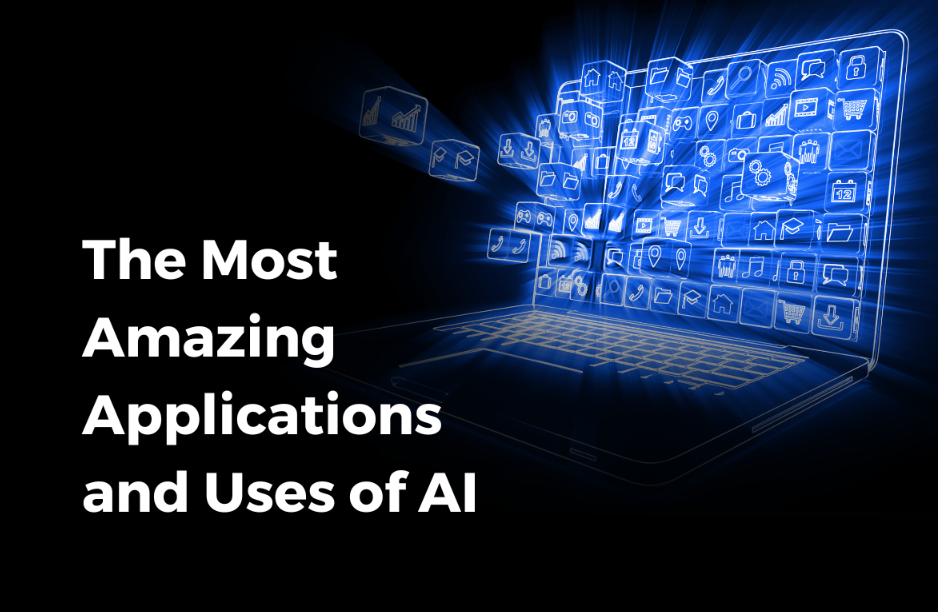Artificial intelligence (AI) is transforming the world in ways that we could not have imagined a few decades ago. From self-driving cars to smart assistants, AI is making our lives easier, safer, and more productive. But AI is not only limited to these common and familiar applications. Many other amazing and surprising uses of AI are changing various fields and industries. In this article, we will explore some of these applications and how they are impacting the world.
AI in Chemical Engineering
Chemical engineering is the branch of engineering that deals with the design, operation, and optimization of chemical processes and systems. Chemical engineers use mathematical models, simulations, and experiments to understand and control the behavior of chemical reactions, separations, and transport phenomena. AI can help chemical engineers to solve complex problems, improve efficiency, and discover new possibilities.
One of the areas where AI can assist chemical engineers is process systems engineering (PSE), which is the discipline that focuses on the integration of different components and processes in a chemical plant. PSE involves tasks such as process design, synthesis, analysis, control, scheduling, and optimization. AI can help PSE by providing intelligent tools and methods for data analysis, modeling, optimization, and decision-making.
While major efforts to develop AI methods for chemical engineering problems started in the early 1980s, it is remarkable that some researchers (for instance, Gary Powers, Dale Rudd, and Jeff Siirola) were investigating AI in PSE in the late 1960s and early 1970s. Written by Venkat Venkatasubramanian, a professor of chemical engineering at Columbia University, in his book “AI in Process Systems Engineering”.
Some of the AI techniques that are used in PSE include artificial neural networks, fuzzy logic, genetic algorithms, expert systems, and machine learning. These techniques can help PSE in various ways, such as:
- Artificial neural networks can be used to model nonlinear and complex phenomena, such as reaction kinetics, thermodynamics, and fluid dynamics. They can also be used to estimate unknown parameters, predict process behavior, and identify faults and anomalies.
- Fuzzy logic can be used to handle uncertainty and imprecision in data and models, such as measurement errors, sensor noise, and linguistic variables. Fuzzy logic can also be used to design robust and adaptive controllers, such as fuzzy PID controllers, that can cope with disturbances and changes in the process.
- Genetic algorithms can be used to optimize process design and operation, such as finding the optimal values of design variables, operating conditions, and control parameters. Genetic algorithms can also be used to perform multi-objective optimization, such as minimizing cost and maximizing performance.
- Expert systems can be used to capture and apply human knowledge and experience in solving PSE problems, such as diagnosis, troubleshooting, and decision support. Expert systems can also be used to provide explanations and recommendations to the users, such as operators, engineers, and managers.
- Machine learning can be used to learn from data and improve the performance of PSE tasks, such as classification, regression, clustering, and reinforcement learning. Machine learning can also be used to discover new patterns, relationships, and insights from data, such as process trends, correlations, and anomalies.
AI in chemical engineering can lead to many benefits, such as:
- Reducing the cost and time of process development and operation
- Enhancing the quality and safety of products and processes
- Increasing the productivity and profitability of chemical plants
- Enabling the discovery and innovation of new processes and products
AI in Music
Music is one of the oldest and most universal forms of human expression and communication. Music can evoke emotions, convey messages, and create connections. Music can also be a source of entertainment, education, and inspiration. AI can help music in many ways, such as:
- AI can generate music, either by mimicking existing styles and genres, or by creating new and original compositions. AI can use techniques such as deep learning, generative adversarial networks, and Markov chains to produce music that sounds realistic, diverse, and creative. AI can also collaborate with human musicians, either by providing suggestions, feedback, or accompaniment, or by co-creating music with them.
- AI can analyze music, either by extracting features, such as pitch, tempo, rhythm, harmony, and melody, or by interpreting meaning, such as mood, emotion, genre, and style. AI can use techniques such as signal processing, natural language processing, and computer vision to process music in various formats, such as audio, lyrics, and scores. AI can also provide insights and recommendations to music listeners, such as personalized playlists, music discovery, and music recommendation.
- AI can enhance music, either by improving the quality, such as noise reduction, pitch correction, and sound synthesis, or by adding effects, such as reverb, distortion, and modulation. AI can use techniques such as digital signal processing, audio editing, and sound design to manipulate music in various ways, such as mixing, mastering, and remixing. AI can also augment music with other media, such as images, videos, and animations.
AI in music can lead to many benefits, such as:
- Expanding the possibilities and diversity of musical expression and creation
- Enriching the experience and enjoyment of musical listening and learning
- Empowering the accessibility and availability of musical resources and tools
AI in HR
Human resources (HR) is the function that manages the people and culture of an organization. HR involves tasks such as recruitment, training, performance management, compensation, benefits, and employee relations. AI can help HR to streamline processes, improve outcomes, and enhance employee engagement.
One of the areas where AI can assist HR is talent acquisition, which is the process of finding, attracting, and hiring the best candidates for a job. AI can help talent acquisition by providing intelligent tools and methods for sourcing, screening, interviewing, and hiring candidates.
Some of the AI techniques that are used in talent acquisition include natural language processing, computer vision, and chatbots. These techniques can help talent acquisition in various ways, such as:
- Natural language processing can be used to analyze job descriptions and resumes, and match them based on skills, qualifications, and preferences. Natural language processing can also be used to generate job postings and candidate feedback, and to communicate with candidates via email or text.
- Computer vision can be used to scan and verify identity documents, such as passports, driver’s licenses, and visas. Computer vision can also be used to perform video interviews and assessments, and to analyze facial expressions, gestures, and eye movements.
- Chatbots can be used to provide information and guidance to candidates, such as job details, application status, and interview tips. Chatbots can also be used to conduct conversational interviews and tests, and to evaluate personality, culture fit, and motivation.
AI in talent acquisition can lead to many benefits, such as:
- Reducing the cost and time of hiring and onboarding
- Improving the quality and diversity of talent pool and hires
- Increasing the satisfaction and retention of candidates and employees
One of the HR professionals who is impressed by the potential of AI in talent acquisition is Cynthia Martinez, who is the head of HR of Global Triangles, a company that provides consulting and technology solutions. She says:
“AI is a game-changer for HR, especially for talent acquisition. AI can help us to find and hire the best talent faster, easier, and cheaper. AI can also help us to create a better candidate experience and a stronger employer brand. AI is not a threat to HR, but a partner that can augment our capabilities and performance.”
Conclusion
AI is a powerful and versatile technology that can be applied to many domains and tasks. AI can help us to solve problems, improve efficiency, and discover new opportunities. AI can also help us to express ourselves, enjoy ourselves, and connect with others. AI is not only a tool, but a partner that can enhance our lives and our world. AI is amazing and surprising, and we have only scratched the surface of what it can do.
SME Paid Under

